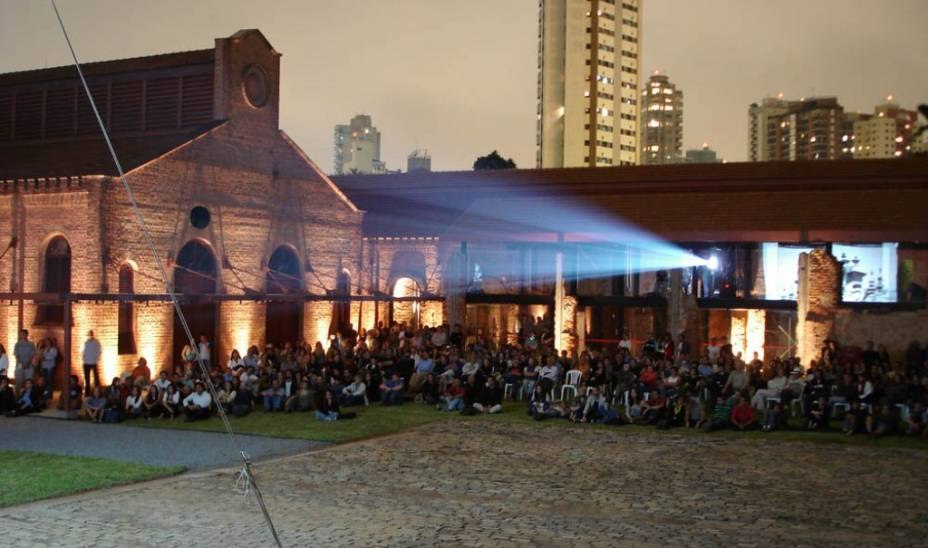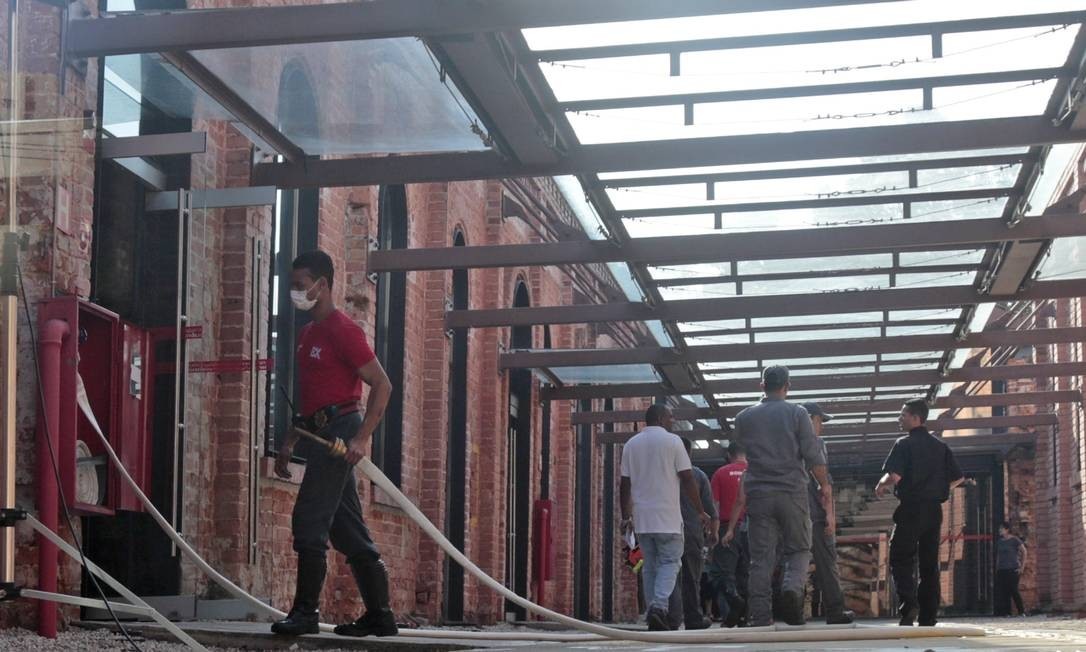RIO DE JANEIRO, BRAZIL – Glauber Rocha’s complete collection, the greatest exponent of the Cinema Novo. The movies of the soccer news channel Canal 100, shot between 1958 and 1986. The recordings by Marechal Rondon on the Brazilian Expeditionary Forces. The original of O Cangaceiro (1953), by Lima Barreto, that was successful in Cannes and is considered the first Brazilian film with international acclaim.

These are but some of the treasures stored in the largest collection of motion pictures in South America, the Cinemateca Brasileira in São Paulo, and that are at risk of disappearing due to the lack of funding from the Federal Government. The Roquette Pinto Association, which has maintained the Cinemateca since 2018, states that the Executive has not passed on any funds this year, and accuses the Bolsonaro Government of owing it R$14 million (US$2.8 million).
In the most recent chapter of this drama, which has been dragging on for months, the Federal Prosecutor’s Office (MPF) filed a civil suit against the federal government on July 15th, charging that the Executive is liable for the “financial strangulation and administrative abandonment” of the site. The outcome of this suit should be known by the end of this week.
Founded in the 1940s and known as the fifth largest film library in the world, the institution houses 250,000 rolls of film, 44,000 of which are short, medium and feature films, in addition to TV programs and records of soccer matches. Its maintenance cost is R$1.2 million per month.
Its 150 employees have been without salaries for four months and have been on strike; even the internal fire brigade is not working, causing the ghost of the National Museum, which caught fire on September 2nd, 2018, to hover over the site. The rolls of cellulose nitrate films, of films produced until the 1950s, are highly flammable since this substance has the capability for spontaneous combustion, that is, the ability to ignite with heat alone. Therefore, some of the institution’s walls are up to two meters thick and some rooms feature a specific cooling system.
Despite the care taken, the Cinemateca has already faced four fires. The most recent one, in February 2016, permanently destroyed 270 titles and another 461 works with backup copies. In February this year, a flood in the institution’s warehouse damaged 113,000 DVD copies. “There is no political or social awareness of what we could lose, of the cultural significance of an era’s documentation. An era is not documented through the GDP, through economic policy, but rather through art and culture,” said actor Carlos Vereza, who denounced the Cinemateca’s situation on social media.
Vereza, who was one of Jair Bolsonaro’s few supporters in the artistic class – the actor broke with the President in April after Henrique Mandetta’s dismissal from the Ministry of Health – accuses former Education Minister Abraham Weintraub of having begun the institution’s “dismantling”. In December, Weintraub ended the Roquette Pinto Educational Communication Association’s (ACERP) contract to produce TV Escola (TV School), with a budget of R$400 million over five years to subsidize the Cinemateca.
Vereza, who hosted the program Plano Sequência on the public channel, was called to a meeting. “He made it clear that he wanted to take my program to EBC [the state-owned Empresa Brasil de Comunicação] and forget about ‘TV Escola’. I said no way. But he ended TV Escola and, as a result, he’s ending Cinemateca too,” he laments.
With the end of the public educational channel, the situation turned into a legal imbroglio, since the original agreement with Cinemateca runs until March 2021 and Roquette Pinto continued to maintain the institution with its own resources. In addition to the federal government’s debt of approximately R$14 million, there are still other pending issues: in 2019, the Government only paid R$7 million of the R$13 million budgeted.
“This is evidence that there is no cultural policy in this Government. Quite the opposite, there is a cold and conscious project to put an end to thought, culture, and art in the country,” says Vereza.

In addition to the Roquette Pinto Foundation, the Cinemateca has received financial assistance from the São Paulo City Hall, which, through the SPCine (municipal film and audiovisual body) and the City Council, has paid for an on-site security team, in addition to some overdue bills.
“I proposed to Mayor Bruno Covas to ask the Federal Government for the municipality to manage the Cinemateca, through an administrative council with artists and technicians. That way, we could ask for a parliamentary budget rider of R$1 million and allocate it to the institution,” says city councilor Xexéu Tripoli. Covas formally requested the Ministry of Tourism, in charge of the Special Secretariat of Culture, but received no reply.
The Minister of Tourism, Marcelo Álvaro Antônio, and the Secretary of Culture Mário Frias, visited the Cinemateca on June 23rd and published a video on Instagram committing themselves to “solving the deadlock”. Frias replaced the actress Regina Duarte in the Secretariat of Culture, to whom Bolsonaro has promised a leading position at the Cinemateca.
The vacancy, which does not exist, has become yet another issue surrounding the institution. In another video, on July 15th, Frias and the Minister of Tourism say that government technicians were prevented by Cinemateca officials from entering the site and deny responsibility for “the debt of a contract that has not been in force for over six months”.
The Ministry of Tourism also states that, since the termination of the Ministry of Education’s contract with Roquette Pinto, the Government does not have access to data that allow it to make decisions regarding the maintenance of public property, such as costs related to water, energy, firefighters, and security, among others. And, therefore, it has not transferred any funds to the institution during this period.
However, the Roquette Pinto Foundation guarantees that it has already provided the Executive with 1.5 terabytes of data. Marcelo Álvaro Antônio and Mário Frias even speculated that the Cinemateca would be moved to Brasília, and that the Government would start managing it, something that would be illegal since the 1984 collection donation deed, granted to the federal government by the Friends of the Cinemateca society, determines that the institution must be located in São Paulo, and prevents the Government from employing civil servants or trusted advisors to serve there.
The document, signed by the federal government during the military regime headed by João Figueiredo, is intended to protect the collection and the audiovisual heritage of the country from political ideologies.
“There isn’t simply the history of cinema at the Cinemateca, but an important part of Brazil’s history. There is the March of the Family, of 1964, the unveiling of filmmaker Marechal Rondon, who filmed and developed in the jungle, produced the first cinematographic nude of an indigenous Brazilian… It’s a treasure that you can’t just transfer to another place. No untrained worker will know how to handle the material,” argues Carlos Vereza.
The future of the institution seems to be, in fact, in the MPF’s hands, as its suit calls for the renewal of the contract with Roquette Pinto until the end of 2020 and grants it 60 days to restructure, maintain and empower the Cinemateca’s Advisory Council,as well as an order not to fire or dismiss employees.
“The documents submitted prove the need to keep the technical staff of specialized employees, with unparalleled expertise in the cinematographic area, whose demobilization (by mere dismissal or repeated absence of payment) will cause irreparable immaterial damage to the federal government (which took years, decades, to form a reproductive center of such expertise there),” reads the document. “While we wait, all that remains is for us to exert political, popular, and cultural pressure so that they will solve the situation,” says city councilor Tripoli.
Source: El País

